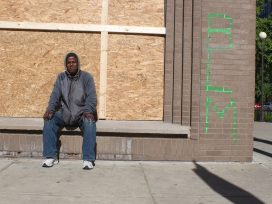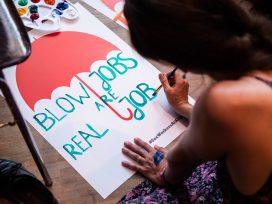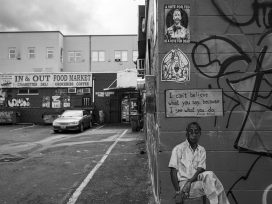Every white man his own racism
The US has no monopoly on under-serving and over-policing minorities. Police brutality is reported from the French suburbs to the Bulgarian countryside, and neo-Nazi resurgence is threatening European Roma in Hungary and Ukraine. Europeans must not wait for another horrific murder to draw attention to our own systemic racism.
It shouldn’t take the video footage of a brutal murder to make us demand that it doesn’t happen again.
About one in every thousand black men can expect to be killed by police in the United States, a recent study concluded. It offers crucial data on something that has long been obvious. In the past decade, public attention has repeatedly been drawn to the violence that authorities exercise on bodies of colour, in large part through video footage of the brutality. And yet, many cases were without consequences for the perpetrators.
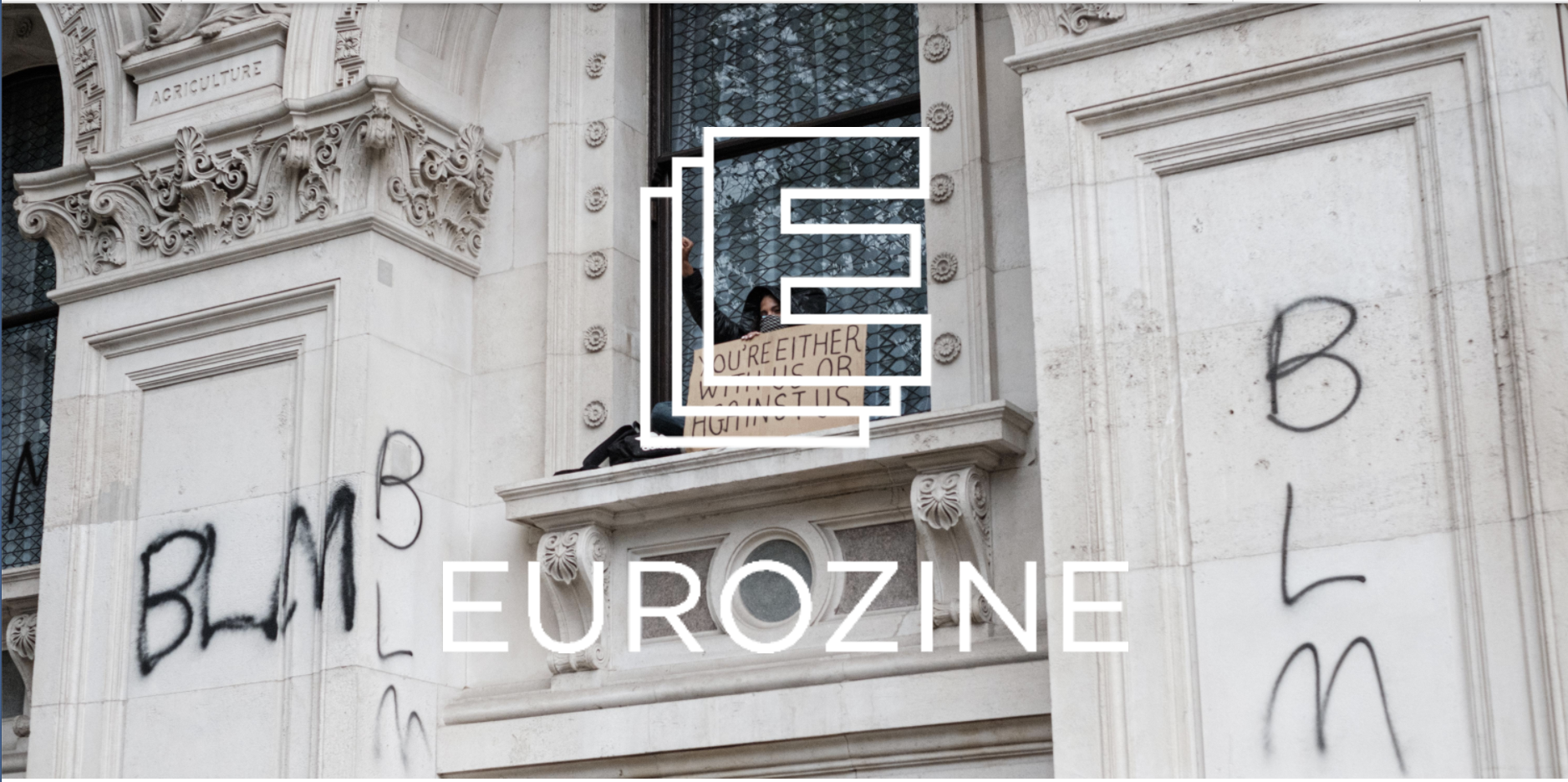
Photo by Ehimetalor Akhere Unuabona on Unsplash.
It should not take international outrage for murderers to be charged.
Weeks before George Floyd was murdered in cold blood by a Minneapolis police officer, jogger Ahmaud Arbery was lynched by a former police investigator and his son in Brunswick, Georgia. It took more than two months and the video of the murder to go viral worldwide for the killers to be arrested.The perverse peculiarity of these cases is that they were recorded for the whole world to see how black people are being mercilessly slaughtered. The most horrifying part, though, is that the general public has to witness these horrors with their own eyes to believe – and that their belief is necessary for the law to be enforced.
Property should never matter more than life.
The killers of Ahmaud Arbery initially claimed that they suspected the jogger of a series of burglaries in their neighbourhood. These were not reported by anyone else. The district attorney who let the perpetrators walk free has since been accused of covering for them.
Of course, American gun culture is hard to comprehend from the outside. From the inside too, as many confirm. The fact that defending property could be a sufficient excuse to kill someone, especially a Black man, is outrageous in itself.
Europeans have no right to scold.
The US has no monopoly on under-serving and over-policing minorities. From outsourcing the middle Eastern refugee crisis to Turkey and Lebanon, to ignoring COVID-19’s effects on marginalized people like sex workers, to allowing for egregious hate crimes – the list is long.
Europeans have a lot of issues of their own to address at the solidarity protests. Police brutality is reported from the French suburbs to the Bulgarian countryside, and tough-on-crime attitudes – which ultimately end up being tough on the poor – have accompanied austerity measures in the social policies of the past decade. The prospect of social mobility has disappeared for a huge portion of our societies and state responses to societal malfunctions have rarely been anything but forceful and damaging, especially since the political mainstream took a sharp turn to the right after the financial crisis.
We must learn to recognize the problem in front of our eyes.
Since 2015, refugees are the resident bogeyman for Europeans, taking over from people of former colonial heritage and, of course, the European Roma, who are scapegoated whenever an asylum seeker isn’t at hand. A prominent example of exploiting antigypsist sentiment is the multifaceted tyrant of Hungary, Viktor Orbán, who in January implied that the damages paid to segregated Roma students in a high-profile education lawsuit was ‘a remarkable sum they will get without any kind of work’.1 In May, after the supreme court confirmed the decision, he doubled down, adding: ‘Because, after all, it is our country, the country of the natives’,2 apparently forgetting that in the perpetually multi-ethnic environment that the Carpathian Basin has always been, Hungarian Roma have been present for about six centuries, which is about as native as it gets around here.
On 22 May, a week after Orbán made that comment, two young men (aged 16 and 22), were stabbed to death at Deák square, the popular tourist destination at the very heart of Budapest. Speculation soon arose that the killer was Roma, based on photographs shared on social media and the colour of his skin. This turned out to be a lie, but it did not stop neo-Nazi protestors from taking to the streets, despite quarantine measures, to chant about ‘gypsycrime’ – a fictitious racist concept that has fuelled hate crimes for over a decade.
Among these was a series of murders in the north-east of Hungary in 2008–2009, which left six Roma people dead, many more injured, and tens of thousands traumatized and terrified. The police initially treated some cases as internal conflicts among Roma; a double murder, of a 4-year-old boy and his father by shotgun, was first treated by the police as a housefire; one police officer even urinated on evidence. Hungarian Roma now express their fears of those days returning, saying they feel it’s fashionable to empathize with African Americans from afar, instead of taking a stance against antigypsysm.
Orbán is not the only contender in the category of state racism though. The Bulgarian minister of defence, Krasimir Karakachanov, said in 2018: ‘If I have to believe these people or the police, I will believe the police’, commenting on multiple investigations into police violence in his country, including into the death of an elderly man. In 2019, Karakachanov called for removing the irregular homes typical of many segregated settlements, as a form of collective punishment after two Roma Bulgarians got in a fight with a non-Roma man. The defence minister said: ‘Gypsies in Bulgaria have become exceptionally insolent. … This cannot continue. The tolerance of Bulgarian society has run out.’ This March, when the coronavirus lockdown was announced, local mayors across the country started to cordon off Roma villages and settlements.
In Ukraine in 2018, in a series of attacks against Roma settlements, two people died and dozens lost all their belongings as they were chased out of their tents, which the perpetrators had set on fire. Just over two years later, on 28 April, a family was again attacked in Kyiv, who arrived in the capital shortly after the far-right mayor of Ivano-Frankivsk in western Ukraine called for the expulsion of Roma from the city, blaming the minority settlements for coronavirus.
Daniel Trilling reports even more cases of abuses, from Spain to Slovakia, against Roma people in the name of coronavirus.
We must no longer ‘learn to live with it’.
These are just a few examples of the threats that minorities face daily throughout Europe. All are made possible by the deep-rooted systemic racism that normalizes these offences. Police and vigilantes kill and assault marginalized people because they know that they have a good chance of getting away with it. Bystanders who tell themselves it’s not their business, are actively enabling them.
Like sexism and gender violence until #MeToo, racist violence has long been viewed as an unchangeable fact of life: something that the fortunate ones turn a blind eye to, and that its victims have to get used to.
Now the majority may finally be admitting the obvious truth. After seeing the violent murders of the past few months, there is a huge change in a discourse that only a few years ago allowed for police to get away with violence despite damning video recordings and other evidence.
However, it is not the images that have induced this change. Deva Woodly explains how the Movement For Black Lives and their allies have gradually persuaded white people that what they see is actually what they see. Thanks in large part to persistent protesting and organizing since the 2014 Ferguson uprising, the American public has started to admit that systemic racism has to be dealt with – and not just rhetorically.
We must not be content with small steps.
Acknowledging the injustice of Black death at the hands of the police, and the racism and xenophobia informing our politics and policies, is a first step, but very far from a solution. These mechanisms kill people regularly – Europe is excelling at leaving people to die these days. Beyond the shock of US politics, Europeans and especially the EU must recognize their own responsibility, our own responsibility, for the mistreatment of people of colour, and not wait for another horrific murder to draw our attention to it.
Because in a society where change is only possible when it’s inescapable, pointless hurt and loss are inevitable.
This editorial is part of our 11/2020 newsletter. Subscribe to get the weekly updates about our latest publications and reviews of our partner journals.
‘… etnikailag meghatározó népcsoport tagjai egy nagy jelentőségű összeget fognak kapni mindenfajta munkavégzés nélkül’, Viktor Orbán said as reported by Index from the Hungarian prime minister's annual press conference 9 January 2020.
’Mert ez mégiscsak a bennszülöttek, tehát ez a mi országunk’, Orbán said on the programme of (allegedly) public service broadcast Kossuth Rádió on 15 May 2020. For details ont he case see Márton Dunai’s report for Reuters.
Published 11 June 2020
Original in English
First published by Eurozine
© Eurozine
PDF/PRINTNewsletter
Subscribe to know what’s worth thinking about.
Related Articles

Can shame produce change?
Public Seminar, Week of 11 March 2021
‘Public Seminar’ assesses the politics of shame: how Afropessimism challenges the established meaning of privilege; the questionable religious fervour of antiracists; and when global human rights ‘naming and shaming’ backfires.
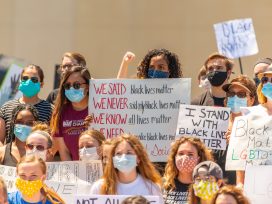
A genealogy of white privilege
On the politics of confession and guilt
The discourse of white privilege is motivated by a genuinely anti-racist and democratic vision. But as a mode of confessional introspection aimed to provoke shame and guilt, its effects can be the opposite of transformational.

